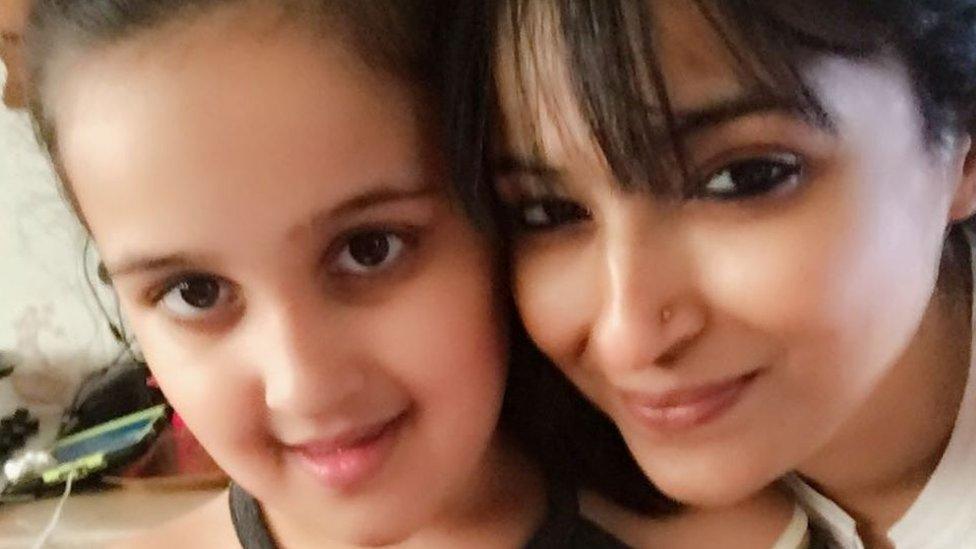Action urged after man killed wife and daughter
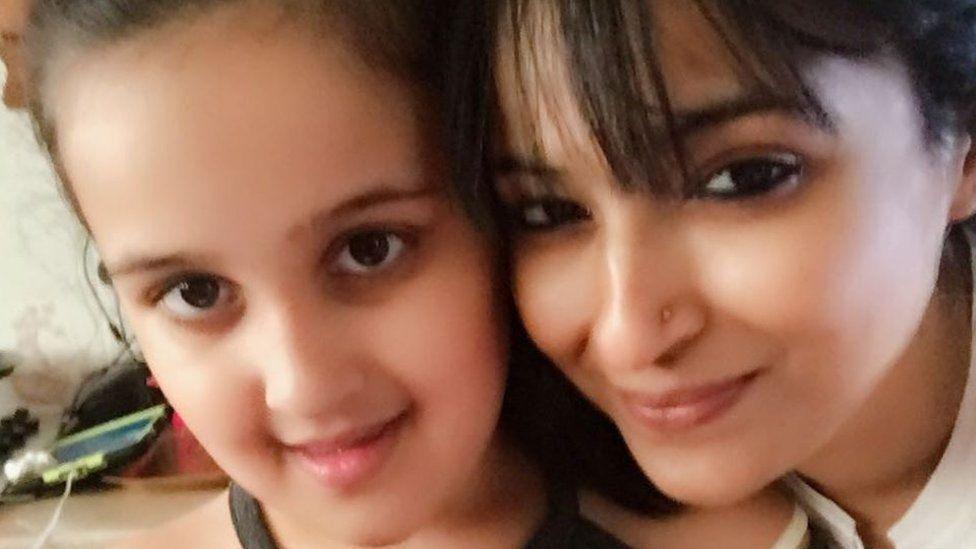
Louise (left) and Jillu Nash were found dead at their home in Great Waldingfield
- Published
Plans to tackle and prevent extremist misogyny and toxic masculinity should be made after a man killed his wife and daughter, a report has said.
Peter Nash, 48, asphyxiated Jillu Nash, 43, and stabbed Louise, 12, at their home in Great Waldingfield, Suffolk, in September 2022.
At a trial last year, he tried to justify the killings as punishment for his wife, who he had separated from, for starting a new relationship and claimed his daughter was his "property".
A Child Safeguarding Practice Review (CSPR), external has made a series of recommendations, including more training in recognising the impact of coercive control for agencies involved in family care.
However, it concluded there was "no evidence that the way this tragedy unfolded could have been reasonably foreseen".
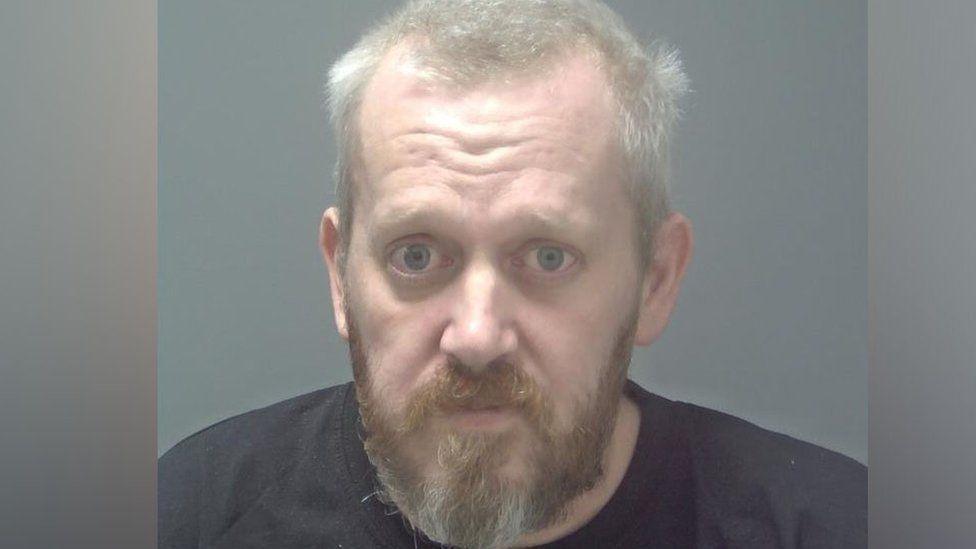
Nash was jailed for a minimum of 40 years in May 2023
The review found that in December 2020, Mrs Nash - who was not named and instead referred to as "Milli" - had disclosed previous mental and physical abuse from her husband to Child and Adolescent Mental Health Services (CAMHS).
She engaged with a domestic abuse adviser but did not pursue criminal charges, instead saying she planned to leave him.
Later that year both she and Nash spoke to officials involved in their daughter's care and said they had separated but that Mrs Nash was still living in the family home.
One practitioner described Nash as "controlling and domineering".
Others said he was rarely seen outside the family home, and even after becoming Louise's primary carer, Mrs Nash was more engaged with officials at school and other aspects of Louise's care.
Louise - referred to as Samantha in the report - had autism and was non-verbal.
However, the day before his wife and daughter were found dead, Nash had asked for practical support to help him care for Louise once his wife moved out.
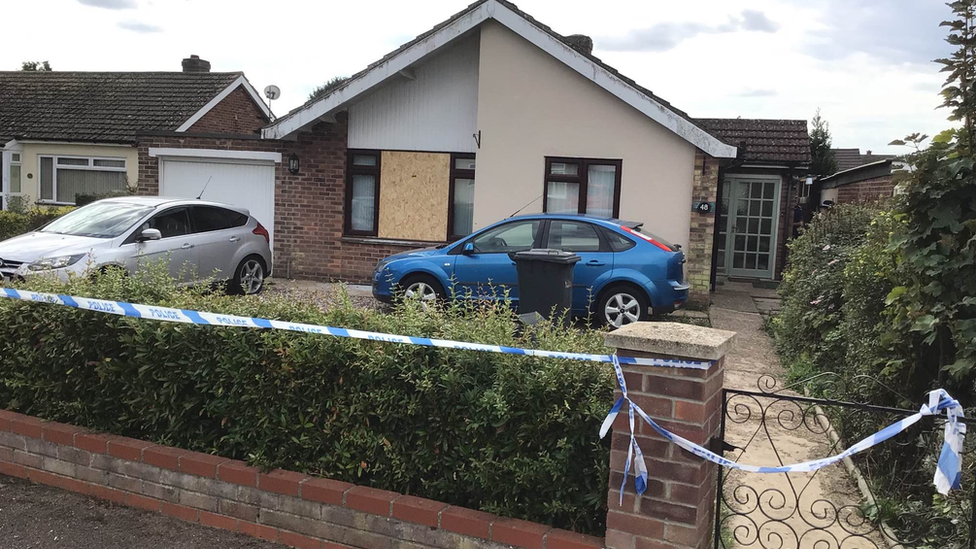
Mrs Nash and Louise lived on the Heath Estate in Great Waldingfield
The report detailed Nash's history of controlling and coercive behaviour.
Even after agreeing to separate, he made his wife sign an agreement to give him their home, savings and car, and preventing her taking their daughter to visit family.
Louise's school was never made aware of the abuse disclosures and was not involved in any safety planning.
The report said not sharing the disclosure with all the relevant agencies in Louise's care meant risk analysis was based on "incomplete intelligence".
Mrs Nash told multiple agencies she did not feel her husband posed a risk to her daughter and felt "empowered".
The review made several recommendations, including making staff across partner agencies aware of the risks and impact of coercive control even when victims say they feel in control.
One expert said Mrs Nash's feeling of empowerment "should have been a red flag" as there is "well established evidence" victims are at greater risk of death when perpetrator’s behaviours are challenged or a relationship ends.
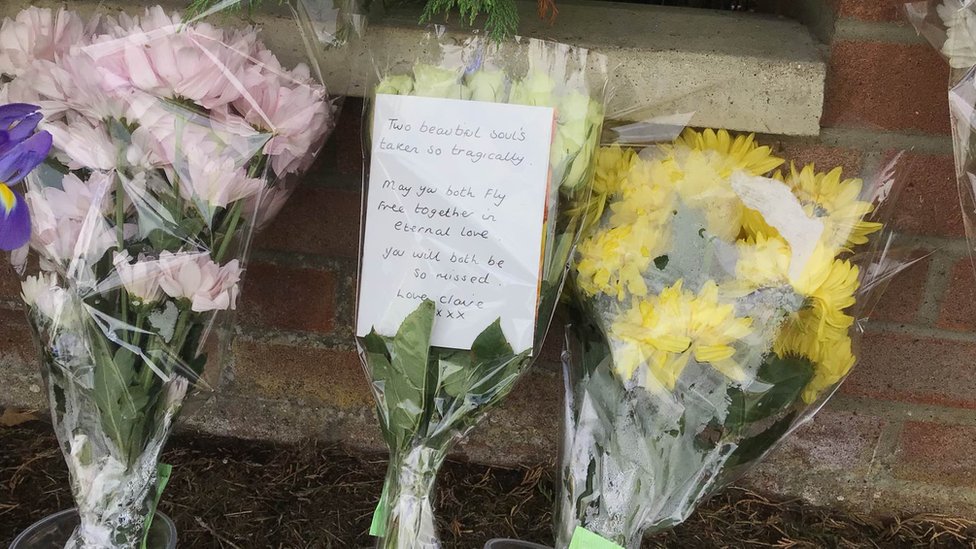
Following the murders, family members said they were "struck by utter devastation, despair and pain"
The review, which focused on the risks to Louise Nash, said issues around domestic abuse would be addressed in a domestic homicide review, which has not yet been published.
Other recommendations included auditing domestic abuse case referrals to determine if further social work and other agency meetings were happening as they should.
It said there should be guidance for children's practitioners about where to record information related to one parent, if it should not be shared with the other.
If risk level is being assessed based on one parent's perception, this should be explored and challenged.
All partner agencies should refresh training in relation to domestic abuse, especially around coercive and controlling behaviour and how this might present in the context of a child.
The report also highlighted that Nash repeatedly referred to his daughter as his "property" and that he was her "owner".
'Working harder to improve'
The review found he was not offered support for his apparently deteriorating mental health and misogynist views, which may have been because of his role as the perpetrator of domestic abuse.
It said "targeted support was needed to reduce the risk" Nash posed to his daughter.
It also recommended the Suffolk Safeguarding Partnership (SSP) and Suffolk’s Community Safety Partnership and Prevent panel should develop a "strategic approach to tackling extremist misogyny and toxic masculinity".
Anthony Douglas, independent chair of the SSP, said while a very high level of support had been given to Mrs Nash and Louise, it was not enough to keep them safe.
"All of us in Suffolk will be working harder to improve our response to toxic masculinity, coercive control and to the heightened risk of violence in family separation where one parent cannot accept the other parent wanting to move on," he said.
"Whilst this shocking tragedy could not have been prevented, more assertive interventions might have reduced the risks and we are applying this learning in our training and education programmes for all professionals working with child and adult safeguarding in Suffolk."
The report also recommended that the Suffolk and North Essex Integrated Care Board should review the counselling or mental health services offered to perpetrators of domestic abuse and publish them for partner agencies.
A spokesman for NHS Suffolk and North East Essex Integrated Care Board said: "We thank the Suffolk Safeguarding Partnership for their report on this tragic case.
"We continue to work with our partners to ensure access to appropriate services is in place."
Follow Suffolk news on Facebook, external, Instagram, external and X, external. Got a story? Email eastofenglandnews@bbc.co.uk, external or WhatsApp us on 0800 169 1830
Related topics
- Published17 May 2023
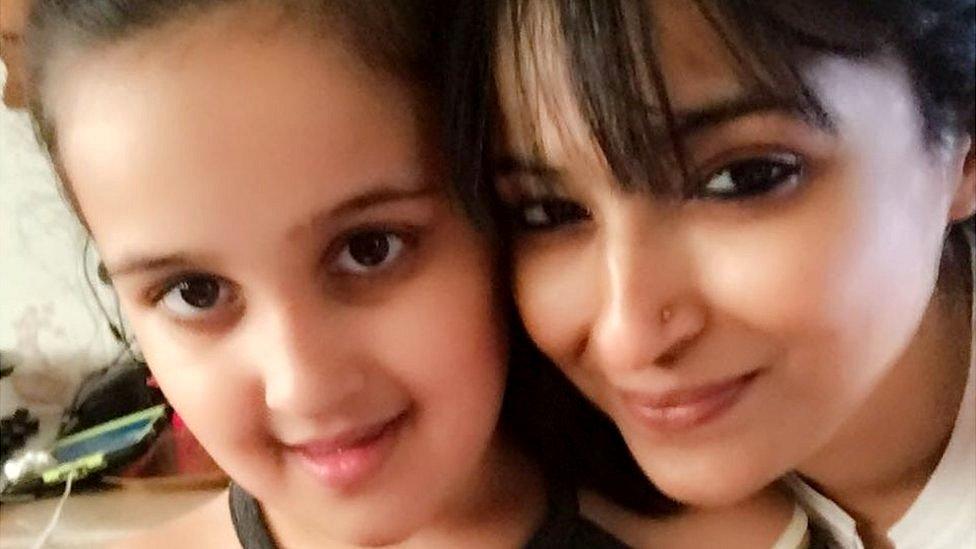
- Published11 May 2023
